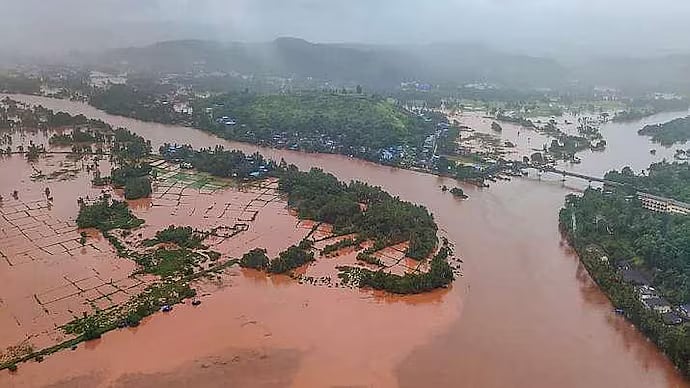India’s human rights record in Kashmir is under the scanner of the UN Human Rights Council. It is not that India has not been criticised for its action in Kashmir earlier but never by the UN. What is more, the report called for an independent UN investigation on abuses in the valley. This happens only in case of major violations as in on going civil war in Syria, brutalties on Rohingyas in Myanmar, in Burundi, Nicaragua and now Kashmir.
In fact, UN Human Rights Commissioner Zeid Ra’ad Al Hussein, speaking at the Council meeting in Geneva on Monday, repeated the call for access denied by both India and Pakistan on either side of the LOC divide. “I encourage the Council to consider establishing a Commission of Inquiry for a more comprehensive investigation of the human rights situation in Kashmir, and reiterate my calls for access”.
Ironically, India had supported UN investigations into abuses in Sri Lanka, when former president Mahendra Rajapaksa was in power. This was soon after the military campaign where LTTE chief Prabhakaran and his top leadership, as well as his 10-year old son was killed by Lankan security forces. The last stage of the war was brutal and India, the US and other Western powers supported the call for a UN investigation into atrocities committed by the army. Much of this had to do with Delhi’s dislike of Rajapaksa who, after the military victory, tilted towards China and by passed India. Once Rajapaksa lost power and a pro India and pro western government took over, the move died a natural death.
During the Cold War years, when India was perceived to be with Russia, and Pakistan was in the US-led Western camp, the situation was very different. Indian diplomats posted in Europe or the US, were regularly grilled on violations in Kashmir. They came out with the standard defence: India is a democracy, it has an independent judiciary, and a free press. Pakistan is fuelling the unrest, so, it is not India’s fault. After the National Human Rights Commission was set up, that was added to the argument.
Following the end of the Cold War and the opening up of the Indian economy as the world saw India as a lucrative market, Kashmir was no longer the talking point. Yes, there were attempts as in 1994, during former prime minister Narasimha Rao’s tenure, to introduce a resolution at the UN Human Rights Commission (as it was then called) on rights violations by Indian forces in Kashmir. Pakistan’s Benazir Bhutto led the charge. India did some heavy lifting: Narasimha Rao roped in then opposition leader Atal Bihari Vajpayee and Kashmir’s stalwart Farooq Abdullah to travel to Geneva to ensure that Pakistan’s motion was rejected by member states. Pakistan deferred the resolution after it realised that members were unlikely to endrose it. “For a great nation like us, there was a certain humiliation involved in having to go around begging for votes on a human rights issue. Let us now use this reprieve to clean up our act in Kashmir or there will be a Geneva every few months,” Vajpayee was quoted as saying after the victory. Wise words indeed, which he tried to follow as PM by reaching out to Kashmiris.
Delhi immediately rejected the report, calling it “fallacious, tendentious and motivated”. Despite the damning UN report, India is in a much better position to counter the charges. For one, since 9/11, terrorism has taken centre stage in international discourse. Many more countries are likely to point fingers at Pakistan rather than India, given its track record in Afghanistan. The US and its allies, which in the past turned a deaf ear to India, is after its experience in Afghanistan inclined to agree with Delhi.
What is more, the US has now walked out of the Human Rights Council on the grounds that it was biased against its allay Isreal. US ambassador to the UN Nikki Haley called the Human Rights Council a “cesspool of political bias”. Israel, which has gunned down hundreds of Palestinian protesters, cannot be criticised because Netanhayu is friends with Donald Trump! This is the kind of might is right logic which works in the Trump White House. There will be a push back from Europe, but America’s withdrawal will impact the UN body. Specualtion is that the Council was expected to chastise the US for separating young children from parents in the zero tolerance policy towards immigration which the administration had adopted. However, in America, there is widespread criticism of Trump’s policy including from fellow Republicans.
That is perhaps the difference with India. Here, not a squeak has emanated from the National Human Rights Commission on abuses in Kashmir or in areas wracked by Maoist insurgency. Neither the free press or the independent judiciary raised its voice when hundreds of youngsters in Kashmir lost their eyesight to pellet guns used by the forces to disrupt stone pelters. In any civilised democracy, these issues need to be highlighted, irrespective of whether the government pays heed. At a time when ultra nationalism is the rule, no one dares question these policies for fear of being dubbed anti-national. It is time for ordinary Indians to realise that holding elections every five years does not make India a democracy. Much more needs to be done.
Seema Guha is a senior journalist with expertise in foreign policy and international affairs.










